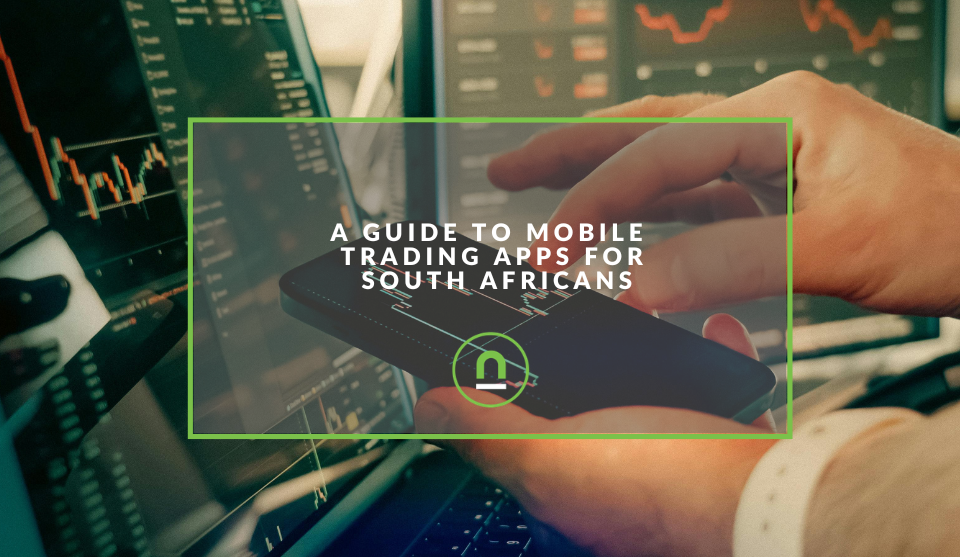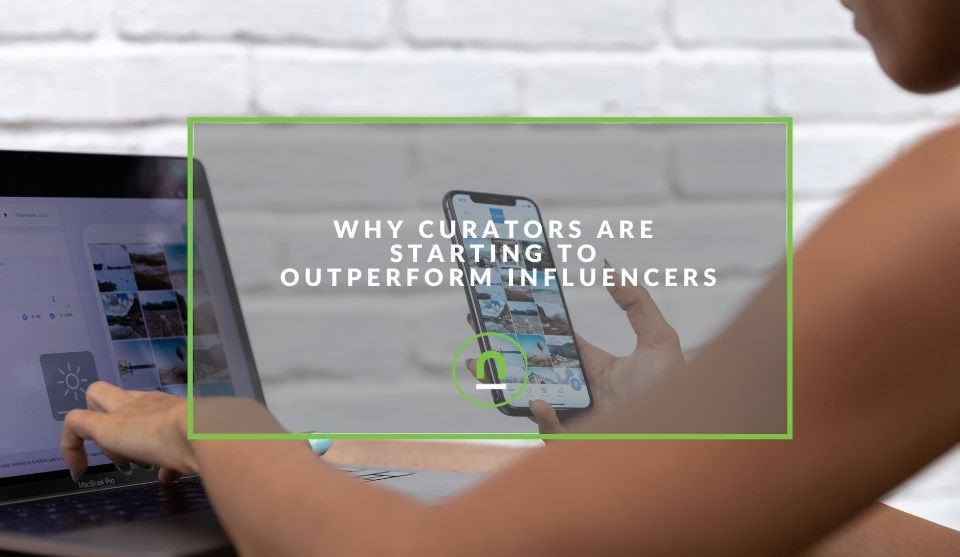Recent posts

Money Talks
A Guide To Mobile Trading Apps for South Africans
19 February 2026

Press Releases
Rehab Your Knee: A Free, Evidence-Based Guide to Smarter Recovery
12 February 2026

Money Talks
XRP vs. Stablecoins: Which Is Better for Cross-Border Payments in 2026?
28 January 2026

Press Releases
Sleep Expert Cautioning Against TikTok’s ‘Mouth Taping’ Trend
28 January 2026
Popular posts
Extravaganza
Trending Music Hashtags To Get Your Posts Noticed
24 August 2018
Geek Chic
How To Fix iPhone/iPad Only Charging In Certain Positions
05 July 2020
Extravaganza
Trending Wedding Hashtags To Get Your Posts Noticed
18 September 2018
Money Talks
How To Find Coupons & Vouchers Online In South Africa
28 March 2019
Why Curators Are Starting To Outperform Influencers
26 October 2021 | 0 comments | Posted by Che Kohler in nichemarket Advice
Ah, influencers, social media snobs that many love to follow, others love to hate, and social media sites love to promote to keep engagement and time-on-site metrics high. Despite what many think, influencers aren't special; they are simply a manifestation of the algorithm game theory playing out on social media platforms today.
Social media sites are focused on keeping you logged in each day for longer periods. Influencers offer content that can be used by algorithms to facilitate these actions so that ads can be served alongside this content.
It was never about the quality of the content, only that there always be fresh content to consume. If you don't believe me, look at how many influencers are simply farming content these days.
It's the same dance to a different song; it's the same beach at a different day and time; it's the same meal at a different restaurant. Influencers are all about creating the most content for the lowest effort, and it's beginning to show.
As time exposes all flawed business models, the idea of having to produce content constantly is always going to see the product suffer, and suffer it has over the last two years especially.
Many may not believe me due to the growth in advertising dollars thrown at the medium, but I can already see the tailwinds forming around the influencer marketing model as we know it today.
I've spoken in the past about the eventual decline of influencer marketing. Still, I never really dived into what would be next or what would compete for the market share until I noticed the rise of curation accounts in various shapes and forms.
The problem with influencers
Social media emerged with a bang, and natural, some would get the hang of the new ecosystem better than others; these super users generated large followings for themselves that they could monetise; thus, "influencers" were born.
Influencers took advantage of the growth in social media platforms and the time spent on them. They used the growth of the platforms to carve out a niche in a certain interest. Traditionally it was a numbers game, and influencers focused on the size of their social media followings to generate profit for themselves. These economic activities usually include promoting particular brands, products, or content. This became known as "influencer marketing."
As we mature as users of these platforms, so has the novelty surrounding these super users; we are slowly finding out that these accounts we follow are nothing but hired guns for promotional content, and influencers weren't authentic.
Wow, shocking news, I know. I am sorry to spill your bubble tea.
These influencers spent countless hours (and dollars) cultivating a particular image of their lifestyle, selling it as a dream that anyone could achieve!
It was the consumerist dream on steroids, and advertisers loved it.
People who follow senseless content are likely to have less capital.
Now, this is by no means a rule, many of us enjoy a viral video or the random turn your brain off type of post, but for the most part, this type of content isn't going to get you into a buying mood. Influencers may be great for brand recognition but not for your bottom line, and businesses slowly realise it.
The vast majority of an influencer's audience tends to be low LSM users with more time to waste on social media than money to deploy what influencers are shilling. It's a misalignment of incentives; these people are looking for free content to pass the time, so trying to sell to them will always result in a lower conversion rate.
All marketing channels eventually mature into performance channels, and since influencer marketing has still pretty informal, brands don't know how to price the attention. As it evolves, so too do pricing models and auctions for influencer reach and thus a decline in revenue for these low conversion eyeballs.
Brands are playing the long game.
Influencer marketing banks on the youth of their audience, their pitch is to get to them young and impressionable, and when they grow up and have disposable income, they'll spend on your brand. Now, this isn't a far fetched idea; big brands like Nike and Coca Cola have been using this strategy for years, playing the long game.
But this strategy doesn't work for everyone, and it requires large margins to play in that field.
The problem with this is how you think between the ages of 13 - 18 changes, and what may have been hip or fashionable and depending may have faded. In addition, young adults tend to change their purchase behaviour when they've left mum and dads credit cards behind and have to work within their disposable income.
Limitations of influencer marketing
Not often spoken about, but influencers have a distinct pigeon hole they all fall into; regardless of the niche they're in, it's often all focused on consumer retail. It could be selling physical products, courses, books to experiences like restaurants, spas and of course travel. This is where the vast majority of influencers cut their teeth, and it's becoming growingly saturated, driving down the cost and effectiveness of anyone influencer.
Yes, they are all competing in a TAM (Total Addressable Market) that is close to maturity but have not yet realised it and will continue to compete and oversupply platforms with content for diminishing results.
The fittest will survive as marketing Darwinism works its way through the sector.
Now let me ask you this.
- If you're a SAAS business, are you going to want to have an influencer strategy?
- If you're a B2B business, do you think cropped photos on Instagram are going to do anything for customer adoption?
- If you're a law firm, financial institution, or product that targets high net worth individuals, is an influencer strategy worth your time?
No, there are Billions of dollars in marketing spend that will never be applicable to the influencer model we give way too much focus on today.
But fear not, there is a growing trend birthing on social media that I think will become a far more effective vehicle for marketing your business with third party services. It's called curator accounts since, well, no one bothered to give it a fancy nomenclature yet.
Do any of my marketing friends want to take a stab at renaming it? Let me know in the comments.
Curators on Facebook
I first noticed these accounts start to pop up on Facebook in a crude form, mostly in Facebook groups. People would create private or public groups around a certain topic, with several people contributing and a few admins moderating the content and discussions.
Curators on Pinterest
Pinterest has its version, known as group boards, where several contributors can compile content in a board and keep it fresh with new content. All contributors are incentivised not only to post their content but content from others to keep the board fresh and give users a reason to return. Pinterest algorithms also reward boards that are constantly updated with more views, so you can see how the incentive snowballs here.
Curators on Instagram
Curators on Instagram are those prowling certain niches and reposting popular content in their specific niche. As the account grows, they will also mix it with their content and relevant news content and updates happening in that niche. It becomes an easier way to keep up with
We've seen this become popular with sports, TV series, Books and Movie related accounts taking the lead in this area. Instead of following all your team pages, all your TV show pages, you can follow this page instead to get updates from all your prefered accounts and extra information that would otherwise be excluded from the more hyper-focused accounts.
Curators on Twitter
To me, Twitter users have so far been the most proactive when it comes to the curatorship of content simply due to Twitter being such a vibrant ecosystem. It may not have the most users, but its users are active and are willing to engage and share content especially counter-arguments to popular topics.
Archive accounts or curator accounts aim to document a certain niche; they will share the most popular news articles, niche publications on certain topics they cover, offer hot takes, create memes and recently even newsletters that summarise all the top takes for that day.
Curators on LinkedIn
As expected, LinkedIn, despite having the features to do this, has always been a laggard social media app. Any trends emerging on other platforms will eventually reach LinkedIn and probably the most cringeworthy of them all. Groups on LinkedIn are still a complete mess with a dumping ground of posts and polls and very new moderators taking it seriously.
As for business and curator accounts, I've seen 1 or 2 mainly in the technology and robots niche but without much success compared to other platforms.
The promise of curators
So what's the difference between an influencer and a curator?
To start, curators are individuals who don't place the focus on themselves but focus on the content. They find, organise, and share their favourite content and products authentically — not because they're being paid to shill a specific product; sometimes there are paid posts in between, but it's far less prominent or likely when compared to traditional influencers.
That's right; you influencers are traditional; you're the man now, the old version, the establishment.
I bet you didn't see that coming, did you?
Curators try to inform, remain as unbiased, unaffiliated, and authentic in their recommendations as possible, which isn't always true. Still, since they curate instead of creating, the biases are evened out based on the sources they recruit from daily.
They share the content, stories, and products that they are personally interested in, and yes, they can sprinkle it with their opinions or personal takes in between.
Curators also build relationships with the various publications they source content from and can even be cited for responses on specific topics as they are seen as trusted sources with their fingers on the pulse.
Something very few, if any, influencers can achieve.
How does curation differ from influencers?
The influencer model is disingenuous, and a broken business model; these accounts are curated lifestyle magazines or mini billboards, and people are growing tired of it as they did magazines and billboards. Due to lack of regulation, however, influencers can skirt the line regarding responsibility and misinformation, making it dangerous for consumers. Therefore, brands associated with these media figures take on additional risks.
Curators, however, offer their audience a guide through culture by putting forward a selection of images, references, codes, product releases, or memes and allowing them to decide. Curation gives even mundane objects value by connecting them with a point of view, heritage, a subculture or purpose that makes them stand out in the vortex of speed, superficiality, and newness.
Curation is not about pushing products between pretty pictures and cookie-cutter motivational tweets; it's about making information available to users that the algorithm failed to do or refuses to share.
Curators are also less about ego, as many curators often choose to remain anonymous as a way of boosting their credibility. They are also not after the sheer reach and volume of followers: in their niches, it's the quality of followers that count.
This makes their audiences a higher quality, more engaged and far more likely to consider their suggestions. Something brands should be looking at if they want to make an impact on social media in the next decade.
A potentially new business model
As social media influencers become a business, I think so too will social media curators. This time it will be less about reach and focus more on driving value to all parties involved. It will be about authority and source information better than your competitors to gain followers and ultimately paid subscribers.
Curator accounts are still in their formative stages. If you focus on a niche, you are passionate about today. It could turn into a profitable business soon.
So what do you think about curator accounts? Share your opinion with us in the comments below.
Let's review your influencer marketing
If you're interested in creating an influencer marketing campaign then contact us form and let us help you put together a campaign strategy.
Promote your business
Are you a business owner? Then why not register on nichemarket and put your business in front of thousands of nicheseekers every month. Registering with nichemarket is easy; all you will need to do is head over to our sign up form and follow the instructions. If you require a more detailed guide on how to create your profile or your listing, then we highly recommend you check out the following articles.
Recommended reading
If you have time to spare why not dive deeper down the rabbit hole and check out these posts for help on Influencer marketing:
- How To Get Brand Deals As A South African Influencer
- How To Calculate The Cost Of A South African Social Media Influencer
- Why Brands Should Opt For Thought Leaders Over Influencers
- Techniques for Working With B2B Influencers
- How To Find The Right Instagram Influencers For Your Business
- How To Find Suitable Instagram Influencers For Your Brand
Tags: Social Media, Social Media Marketing, Influencer Marketing
You might also like
Africaworks Accelerates The Rollout Of Real Estate Investment Platform
20 January 2026
Posted by Nicolas Teisserenc in Press Releases
AWIP accelerates the rollout of its urban real estate investment platform in West Africa, raising €4m and fully deploying it into two off-market acqu...
Read moreThe Rise of AI Computing Power Assets
16 January 2026
Posted by Rehman Ali in Press Releases
An introduction to Cloud mining and monetising cloud computing as DLMining Reshapes Wall Street's New Anti-Inflation Investment Paradigm
Read more{{comment.sUserName}}
{{comment.iDayLastEdit}} day ago
{{comment.iDayLastEdit}} days ago
 {{blogcategory.sCategoryName}}
{{blogcategory.sCategoryName}}


